Center Based Preschool Curriculum
Schedule A Web Walk Today!
Let us give you a private tour of our curriculum online. We would love to share it with you!
With Fusion Early Learning you get more than just curriculum. We have packed our program full of features that will simplify your business so that you can focus on what is most important...
An F.E.L. License Includes:
Full version of Fusion Early Learning
Unlimited email accounts
Unlimited Google Apps Accounts
Teacher training & support
Assessment tools
Customized website for your preschool
Search Engine Optimization
Graphic Design Services
Consulting
Affordable Pricing - based on licensed capacity
Are you ready to think outside of the box?
A box of curriculum is a static product that cannot grow or adapt with your business. Fusion Early Learning is a system; a system of planning that allows teachers to plan their own lessons, use lesson formats that best suit their students and their teaching style as well as provide more opportunities for educational fun and creativity in the classroom.
Fusion Early Learning also provides a balance of control for directors and owners by providing consistency in the educational services you provide. There is peace of mind that comes with knowing that the same concepts are being taught every week in each classroom across multiple locations. Thinking outside of the box will draw more customers to your schools and create endless educational opportunities for your students.
How It Works

Curriculum Overview
Samples of Thematic Settings
August
The Enticing Stories, Wondrous Creatures and the Far Off Lands of Make Believe
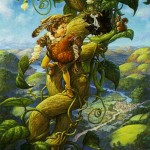 This month the Blue Room will be exploring the people and stories of make-believe through 4 popular Fairy Tales. The Green Room we will be introducing students to creatures whose existence have always been in question. The Red Room will be exploring the music of Mozart and the artistic components of Make Believe. Each week Fusion Kids will create art that is inspired not only by the make-believe creatures they are exploring, but also by the music of Wolfgang Amadeus Mozart. Students will also have multiple opportunities to participate in pretend play, imagining themselves to be fairies, mermaids and giants!
This month the Blue Room will be exploring the people and stories of make-believe through 4 popular Fairy Tales. The Green Room we will be introducing students to creatures whose existence have always been in question. The Red Room will be exploring the music of Mozart and the artistic components of Make Believe. Each week Fusion Kids will create art that is inspired not only by the make-believe creatures they are exploring, but also by the music of Wolfgang Amadeus Mozart. Students will also have multiple opportunities to participate in pretend play, imagining themselves to be fairies, mermaids and giants!
September
Space: Exploring the Universe through Science and Literature
 Our school year begins with Back To School Week followed by our Sept. Theme. During the month of September students will be transformed into space explorers. They will experience its many wonders and be introduced to the great mind of Galileo Galilei. Students will also have the opportunity to read illustrated versions of some of the world’s greatest science fiction novels written by H.G. Wells and Jules Verne. Perhaps the most exciting aspect of this month will be the Planetarium that students will construct in the Red Room. Once built, students will have the ability to gaze at the planets, the stars and distant galaxies.
Our school year begins with Back To School Week followed by our Sept. Theme. During the month of September students will be transformed into space explorers. They will experience its many wonders and be introduced to the great mind of Galileo Galilei. Students will also have the opportunity to read illustrated versions of some of the world’s greatest science fiction novels written by H.G. Wells and Jules Verne. Perhaps the most exciting aspect of this month will be the Planetarium that students will construct in the Red Room. Once built, students will have the ability to gaze at the planets, the stars and distant galaxies.
October
When You’re Strange: Bizarre Nature, Offending the Senses and the Brothers Grimm
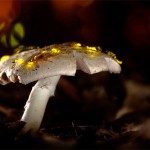 During the month of October students will be exploring the bizarre and strange. They will be introduced to such concepts as bioluminescence and decomposition and will have the opportunity to use their senses while experiencing a variety of unusual smells, sounds, tastes and tactile sensations. The month wouldn’t be complete without a “strange” literary influence. The Brothers Grimm will take center stage with stories such as, “Rumplestilskin” “Little Red Riding Hood,” “Rapunzel,” and Hansel and Gretel.”
During the month of October students will be exploring the bizarre and strange. They will be introduced to such concepts as bioluminescence and decomposition and will have the opportunity to use their senses while experiencing a variety of unusual smells, sounds, tastes and tactile sensations. The month wouldn’t be complete without a “strange” literary influence. The Brothers Grimm will take center stage with stories such as, “Rumplestilskin” “Little Red Riding Hood,” “Rapunzel,” and Hansel and Gretel.”
November
A Culinary Tour of the World
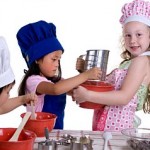 During the month of November students will be immersed in the world of International Cuisine! Students will be given the opportunity to learn about and create dishes from India, Thailand, Greece & Brazil or France, Mexico, China & Italy. In addition to cooking, students will be introduced to the customs and culture indicative of the region being studied and will learn how to read and write menus and recipes! Art will be inspired by the spices, fruits and vegetables that students will be cooking with. Each week will end with a feast inspired by the region. Let’s eat!
During the month of November students will be immersed in the world of International Cuisine! Students will be given the opportunity to learn about and create dishes from India, Thailand, Greece & Brazil or France, Mexico, China & Italy. In addition to cooking, students will be introduced to the customs and culture indicative of the region being studied and will learn how to read and write menus and recipes! Art will be inspired by the spices, fruits and vegetables that students will be cooking with. Each week will end with a feast inspired by the region. Let’s eat!
December
The Winter Season
 This month in the Blue Room we will be exploring some stories with our students that focus on the wonder and fun of the winter season! The Green Room is focused on learning about the seasonal changes that occur in winter. We will explore these changes with our students throughout the month to give them a better understanding of the world around them. The Red Room we will be teaching students about many of the different types of recreation that are available during the Winter season.
This month in the Blue Room we will be exploring some stories with our students that focus on the wonder and fun of the winter season! The Green Room is focused on learning about the seasonal changes that occur in winter. We will explore these changes with our students throughout the month to give them a better understanding of the world around them. The Red Room we will be teaching students about many of the different types of recreation that are available during the Winter season.
January
The Mesozoic Era: Paleontology and the Art of David Krentz
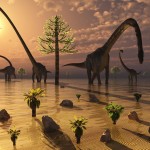 During the month of January students will be exploring the unbelievable world of dinosaurs! They will start by acquiring knowledge of the dinosaurs that lived during the Mesozoic Era and will end the month as dinosaur scholars and paleontologists! Students will also be introduced to captivating, fictional stories about dinosaurs such as, “Patrick’s Dinosaurs” by Carol Carrick and “The Lost Dinosaur Bone” by Mercer Mayer. Students will even have the opportunity to write their own story about their discovery of dinosaur bones! Throughout the month students’ imaginations will be held captive by the amazing dinosaur sculptures and animation of David Krentz and will be creating their own dinosaur artwork through a variety of mediums.
During the month of January students will be exploring the unbelievable world of dinosaurs! They will start by acquiring knowledge of the dinosaurs that lived during the Mesozoic Era and will end the month as dinosaur scholars and paleontologists! Students will also be introduced to captivating, fictional stories about dinosaurs such as, “Patrick’s Dinosaurs” by Carol Carrick and “The Lost Dinosaur Bone” by Mercer Mayer. Students will even have the opportunity to write their own story about their discovery of dinosaur bones! Throughout the month students’ imaginations will be held captive by the amazing dinosaur sculptures and animation of David Krentz and will be creating their own dinosaur artwork through a variety of mediums.
February
Culture Shock: Authors, Inventions and Music that Changed the World
 During the month of February students will be introduced to a number of authors, inventions and types of music that influenced the culture of the world. Students will learn from authors such as Aesop, Beatrix Potter, J.R.R. Tolkien and Stan Lee and see the world through the eyes of the characters created in their stories. Students will also have the opportunity to celebrate the inventions of the toothbrush, light bulb, telephone and television as well as discuss how the T.V. dinner transformed the “family dinner.” Music will be an important component throughout the month, allowing students to experience the era of Swing and the birth of Rock and Roll as well as the Woodstock and Hip Hop generations.
During the month of February students will be introduced to a number of authors, inventions and types of music that influenced the culture of the world. Students will learn from authors such as Aesop, Beatrix Potter, J.R.R. Tolkien and Stan Lee and see the world through the eyes of the characters created in their stories. Students will also have the opportunity to celebrate the inventions of the toothbrush, light bulb, telephone and television as well as discuss how the T.V. dinner transformed the “family dinner.” Music will be an important component throughout the month, allowing students to experience the era of Swing and the birth of Rock and Roll as well as the Woodstock and Hip Hop generations.
March
The Investigation and Research of Biomes and Ecosystems of the World
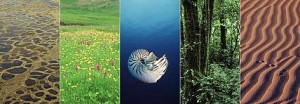 During the month of March students will be taking an expedition through many of the biomes and ecosystems of the world. Students will learn about the weather, plants and topography, as well as unique characteristics of each biome they visit. Students will also focus on the animals and insects found in each biome by reading field guides and keeping track of their own observations. Biomes explored will include the Arctic Tundra, the African Savanna, the Ocean and the Rainforest. In order to relay the importance of preserving these wondrous spaces, a good amount of the month will be spent on introducing the idea of conservation and recycling. Students will even be given the opportunity to create recycled art and fashion!
During the month of March students will be taking an expedition through many of the biomes and ecosystems of the world. Students will learn about the weather, plants and topography, as well as unique characteristics of each biome they visit. Students will also focus on the animals and insects found in each biome by reading field guides and keeping track of their own observations. Biomes explored will include the Arctic Tundra, the African Savanna, the Ocean and the Rainforest. In order to relay the importance of preserving these wondrous spaces, a good amount of the month will be spent on introducing the idea of conservation and recycling. Students will even be given the opportunity to create recycled art and fashion!
April
The Evolution of Modern Transportation
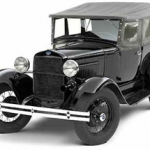 During the month of April students will be transported back in time to the 19th and 20th centuries. While there they will have the opportunity to learn about modes of transportation in the Wild West and the early 20th century. Trains, planes and automobiles will be the focus our longitudinal study of how theses amazing machines have changed over the years so that students will be able to predict what vehicles may be like in the future! Students will also be reading literature based on famous transportation stories such as the Titanic and the story of Amelia Earhart. The month wouldn’t be complete without a chance to “work” in one of Henry Ford’s factories and be an aerial photographer.
During the month of April students will be transported back in time to the 19th and 20th centuries. While there they will have the opportunity to learn about modes of transportation in the Wild West and the early 20th century. Trains, planes and automobiles will be the focus our longitudinal study of how theses amazing machines have changed over the years so that students will be able to predict what vehicles may be like in the future! Students will also be reading literature based on famous transportation stories such as the Titanic and the story of Amelia Earhart. The month wouldn’t be complete without a chance to “work” in one of Henry Ford’s factories and be an aerial photographer.
May
Life during Medieval Times: Knights, Castles and Treasured Folklore
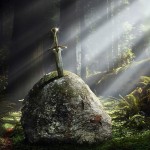 During the month of June students will travel back in time to the days of brave knights, legendary tournaments and magnificent castles. Students will experience life as it was back in Medieval Times. They will eat medieval cuisine, dress in medieval clothing and participate in the work of peasants and noblemen. Students will also be introduced to several literary classics written during medieval times: “Beowulf,” “King Arthur,” “Robin Hood,” and “The Three Musketeers.” The month will end with a Renaissance Faire complete with food, music, and games for all to enjoy!
During the month of June students will travel back in time to the days of brave knights, legendary tournaments and magnificent castles. Students will experience life as it was back in Medieval Times. They will eat medieval cuisine, dress in medieval clothing and participate in the work of peasants and noblemen. Students will also be introduced to several literary classics written during medieval times: “Beowulf,” “King Arthur,” “Robin Hood,” and “The Three Musketeers.” The month will end with a Renaissance Faire complete with food, music, and games for all to enjoy!
June & July
Discovery Camp
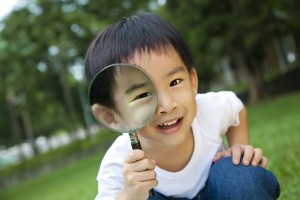 This a fun and flexible component to add to your program. Themes appeal to a wider age range and can be priced separately to accommodate your customer's summer plans. This program is designed to bring in new business so we recommend that current customers be allowed to continue their enrollments on their same schedule and price point. This is however a great opportunity to get some of those 2 & 3 part day enrollments to up 5 part days for certain weeks.
This a fun and flexible component to add to your program. Themes appeal to a wider age range and can be priced separately to accommodate your customer's summer plans. This program is designed to bring in new business so we recommend that current customers be allowed to continue their enrollments on their same schedule and price point. This is however a great opportunity to get some of those 2 & 3 part day enrollments to up 5 part days for certain weeks.
We have seen the results...
The Fusion Early Learning Curriculum is what has allowed us to open four preschools over a span of seven years, as well as given us the opportunity to be voted "Best Of" in the counties where our schools reside. It also has given us the flexibility to make use of a variety of different facility types while keeping the initial investment of opening a school low.
Whether you currently own and operate a preschool or early learning center or are thinking about opening one, the Fusion Early Learning Curriculum can help you achieve a level of education in your program you may have never thought possible.
We are currently looking for preschools who think they may be a good fit for the Fusion Early Learning Curriculum. We would love to help you create an educational setting where the young minds of future mathematicians, scientists, artists and authors are awoken.
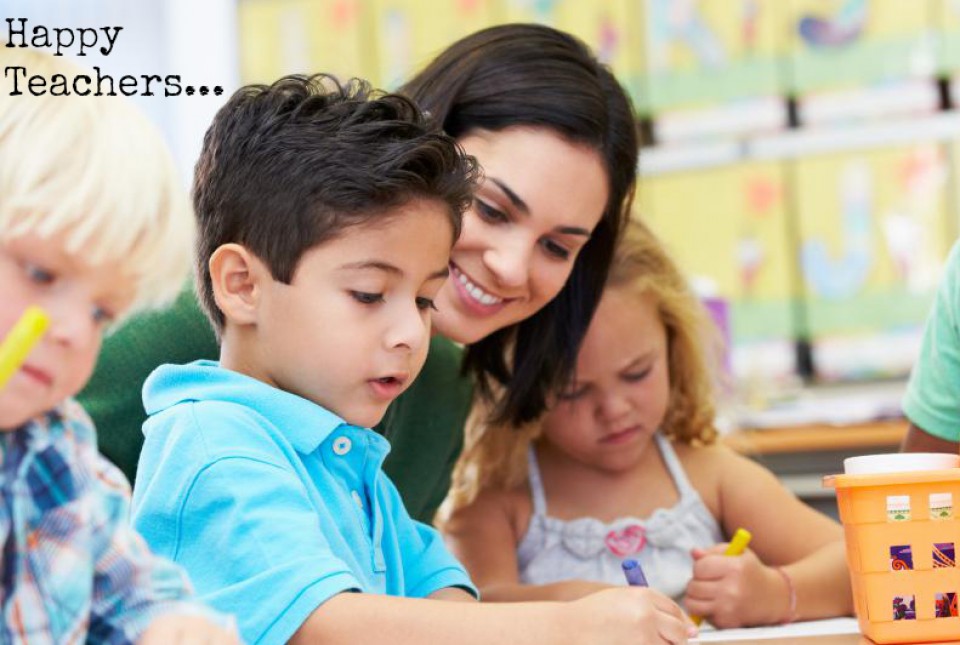
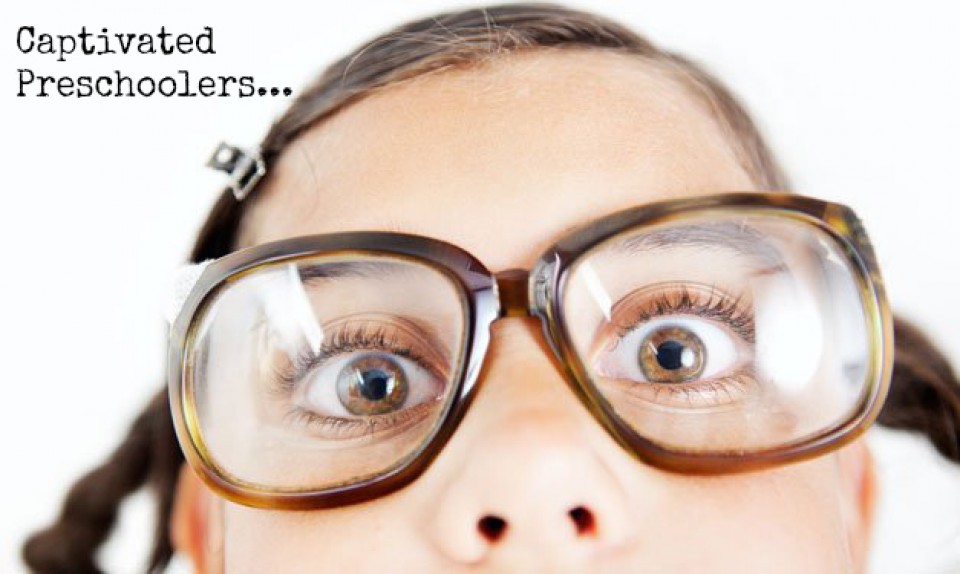
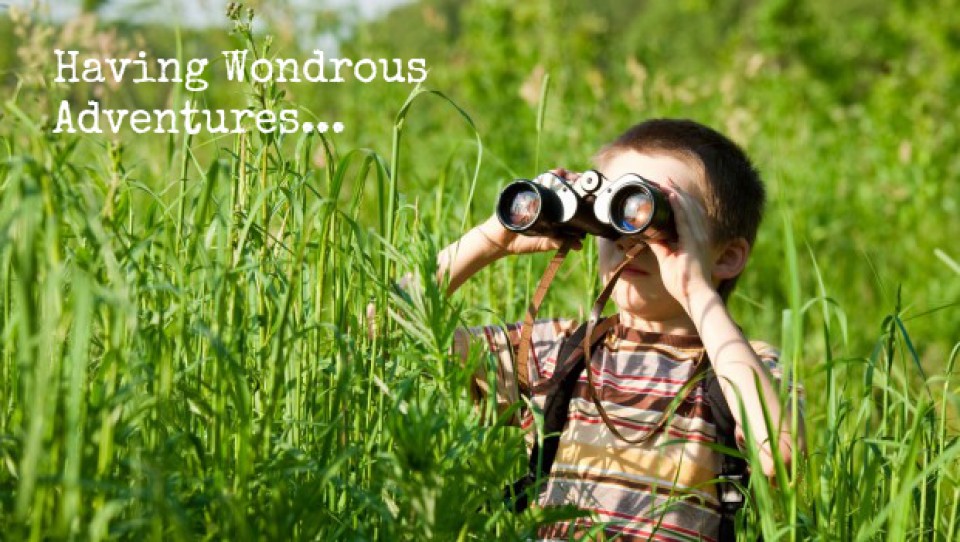
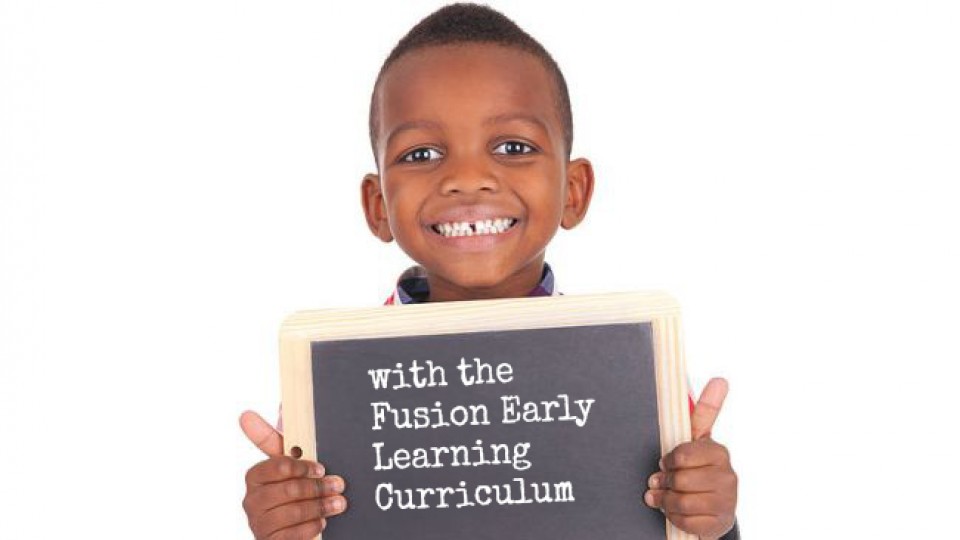
 In the educational climate of today there is a disconnect between the philosophies of early childhood education and those practiced in elementary education and beyond. Most early learning programs to some extent subscribe to a “learning through play” approach while most elementary schools teach through traditional direct instruction methods. Fusion Preschools bridge this gap by combining philosophies to provide a unique approach to early learning.
In the educational climate of today there is a disconnect between the philosophies of early childhood education and those practiced in elementary education and beyond. Most early learning programs to some extent subscribe to a “learning through play” approach while most elementary schools teach through traditional direct instruction methods. Fusion Preschools bridge this gap by combining philosophies to provide a unique approach to early learning. The learning environments in our preschools are divided into three classrooms to provide the most comprehensive learning experience possible for young learners. Each classroom is designed to teach specific subjects. Students rotate through each classroom throughout the school day so that they may take advantage of all educational opportunities offered. Students spend their day with the same group of students so that they may effectively create bonds of friendship with their classmates. Groups are determined by age and developmental ability.
The learning environments in our preschools are divided into three classrooms to provide the most comprehensive learning experience possible for young learners. Each classroom is designed to teach specific subjects. Students rotate through each classroom throughout the school day so that they may take advantage of all educational opportunities offered. Students spend their day with the same group of students so that they may effectively create bonds of friendship with their classmates. Groups are determined by age and developmental ability. Students are introduced to new subject matter each month through highly organized thematic settings. Thematic settings are designed to provide an engaging learning environment through which lessons are taught. Each thematic setting comes with a new set of Learning Goals and Sub Themes for each classroom.
Students are introduced to new subject matter each month through highly organized thematic settings. Thematic settings are designed to provide an engaging learning environment through which lessons are taught. Each thematic setting comes with a new set of Learning Goals and Sub Themes for each classroom. The Learning Goals created for Fusion Early Learning were developed through the careful study of content standards for Kindergarten and First Grade. What has resulted are Learning Goals that not only challenge students on a daily basis, but also meet their developmental needs. Fusion’s Learning Goals are divided into three categories: Primary Learning Goals, Secondary Learning Goals and Ongoing Learning Goals.
The Learning Goals created for Fusion Early Learning were developed through the careful study of content standards for Kindergarten and First Grade. What has resulted are Learning Goals that not only challenge students on a daily basis, but also meet their developmental needs. Fusion’s Learning Goals are divided into three categories: Primary Learning Goals, Secondary Learning Goals and Ongoing Learning Goals. The Fusion Early Learning curriculum is unique in many ways. It is a comprehensive system of learning for both early childhood educators and their students. It gives teachers the guidance they need to successfully create lessons while empowering them as an educator. Fusion teachers are as unique as the curriculum they provide. Their sense of ownership and dedication is unmatched in the industry. Our teachers will never underestimate your child’s capacity to learn, or fail to challenge them as they grow. Fusion Early Learning Preschools are the only preschools that provides 3 distinct, highly organized lesson plans for every day your child attends.
The Fusion Early Learning curriculum is unique in many ways. It is a comprehensive system of learning for both early childhood educators and their students. It gives teachers the guidance they need to successfully create lessons while empowering them as an educator. Fusion teachers are as unique as the curriculum they provide. Their sense of ownership and dedication is unmatched in the industry. Our teachers will never underestimate your child’s capacity to learn, or fail to challenge them as they grow. Fusion Early Learning Preschools are the only preschools that provides 3 distinct, highly organized lesson plans for every day your child attends. Fusion Early Learning Preschools assess all students prior to graduation. We feel that it is essential that parents are aware of the academic and social status of their child’s education before entrance into the world of elementary education. At the end of each school year Directors meet with all graduating students individually to assess them in several areas: Reading Comprehension, Writing Skills, Listening Skills, Number Sense, Letter Recognition, Fine Motor Skills (i.e. cutting, coloring, holding a pencil), Counting Skills, Shape Recognition, Color Recognition, and Directional Awareness (i.e. left, right, above, below, etc.). Assessments are based on skills and concepts students need to acquire prior to entering the first grade. Once assessments are complete, Directors meet with parents to discuss the results. The assessment is given to the parent so it can also be a tool for them to track their child’s progress throughout the Kindergarten year, ensuring that all skills are mastered before entrance into the first grade.
Fusion Early Learning Preschools assess all students prior to graduation. We feel that it is essential that parents are aware of the academic and social status of their child’s education before entrance into the world of elementary education. At the end of each school year Directors meet with all graduating students individually to assess them in several areas: Reading Comprehension, Writing Skills, Listening Skills, Number Sense, Letter Recognition, Fine Motor Skills (i.e. cutting, coloring, holding a pencil), Counting Skills, Shape Recognition, Color Recognition, and Directional Awareness (i.e. left, right, above, below, etc.). Assessments are based on skills and concepts students need to acquire prior to entering the first grade. Once assessments are complete, Directors meet with parents to discuss the results. The assessment is given to the parent so it can also be a tool for them to track their child’s progress throughout the Kindergarten year, ensuring that all skills are mastered before entrance into the first grade. The unique design of the Fusion Early Learning Curriculum as well as the functionality of the preschool environment is what makes our students strive to learn. Fusion Kids are constantly engaged in the learning process ultimately eliminating most behavioral issues in the classroom. This allows teachers and students to focus on and take advantage of the educational opportunities being offered. Fusion Early Learning Preschools produce graduates that are academically and socially ready for the educational adventures that await them. Most Fusion graduates enter Kindergarten above grade-level. Many are placed in combination Kindergarten/First-Grade classes so that they continue to be challenged in their first year of elementary education. To ensure that your preschooler experiences the same success, give your little one the opportunity to begin their academic career at the age of 3, spending at least two years in a Fusion Preschool.
The unique design of the Fusion Early Learning Curriculum as well as the functionality of the preschool environment is what makes our students strive to learn. Fusion Kids are constantly engaged in the learning process ultimately eliminating most behavioral issues in the classroom. This allows teachers and students to focus on and take advantage of the educational opportunities being offered. Fusion Early Learning Preschools produce graduates that are academically and socially ready for the educational adventures that await them. Most Fusion graduates enter Kindergarten above grade-level. Many are placed in combination Kindergarten/First-Grade classes so that they continue to be challenged in their first year of elementary education. To ensure that your preschooler experiences the same success, give your little one the opportunity to begin their academic career at the age of 3, spending at least two years in a Fusion Preschool.